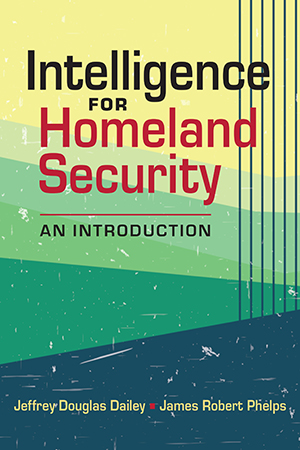
- 2021/275 pages
Intelligence for Homeland Security:
An Introduction
Hardcover: $95.00
ISBN: 978-1-62637-963-3
Paperback: $35.00
ISBN: 978-1-62637-964-0
Ebook: $35.00
ISBN: 978-1-955055-06-2
Since the September 11 terrorist attacks—considered one of the worst intelligence failures in US history—the many agencies that constitute the homeland security enterprise have aggressively developed their intelligence capabilities and activities. Jeffrey Dailey and James Phelps provide a comprehensive introduction to the nature of intelligence, its structures, roles, and missions, in the context of homeland security.
This accessible text:
• Covers the full gamut of agencies involved in homeland security
• Tackles difficult ethical issues
• Discusses specific threats—ranging from drug trafficking and money laundering to bioterrorism and the challenges of Covid-19—and how they are dealt with by the intelligence community
• Looks at how intelligence for national security can be applied to domestic security
• Addresses the realities of intelligence sharing among federal, state, and local organizations
Enriched with numerous case studies of both successes and failures, the book has been carefully designed to meet the needs of students focusing on homeland security, intelligence, criminal justice, policing, security management, and related fields.
This accessible text:
• Covers the full gamut of agencies involved in homeland security
• Tackles difficult ethical issues
• Discusses specific threats—ranging from drug trafficking and money laundering to bioterrorism and the challenges of Covid-19—and how they are dealt with by the intelligence community
• Looks at how intelligence for national security can be applied to domestic security
• Addresses the realities of intelligence sharing among federal, state, and local organizations
Enriched with numerous case studies of both successes and failures, the book has been carefully designed to meet the needs of students focusing on homeland security, intelligence, criminal justice, policing, security management, and related fields.







